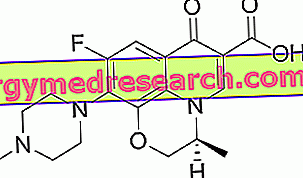Related articles: Chikungunya
Definition
Chikungunya is an acute infectious disease caused by the homonymous virus belonging to the Togaviridae family.
The viral agent is transmitted to humans by the bite of infected mosquitoes of the genus Aedes ; the Aedes aegypti and the Aedes albopictus (commonly called "tiger mosquito") are implicated. Mosquitoes come into contact with the virus by pricking human beings or infected animals (eg monkeys) and remain carriers of the disease throughout their life cycle.
Chikungunya is more widespread in Africa and Asia.
Most common symptoms and signs *
- Miscarriage
- Asthenia
- Increase in the ESR
- Chills
- Cachexia
- Articolar pains
- Muscle pains
- Bruising
- Hepatitis
- Ease of bleeding and bruising
- Temperature
- Leukopenia
- macules
- Headache
- Meningitis
- Nausea
- papules
- petechiae
- thrombocytopenia
- itch
- Joint stiffness
- Nosebleeds
- Bleeding gums
Further indications
After the bite of an infected mosquito, the onset of chikungunya occurs after 4-8 days, but the incubation period can vary from 2 to 12 days. At the onset, the disease is characterized by flu-like symptoms, such as high fever (above 39 ° C), headache, weakness and severe diffuse joint pain, which sometimes force the patient to take a folded position ("chikungunya" means " that contorts ").
Common symptoms also include muscle pain, nausea and haemorrhagic manifestations (petechiae, ecchymoses, epistaxis and gingival bleeding). After the onset of fever, an itchy rash, typically maculo-papular, may also occur, involving the trunk and extremities.
Chikungunya generally has a benign course and usually resolves spontaneously within 7-10 days. However, joint pain and fatigue may also persist for a few months. Possible complications of chikungunya are represented by myocarditis, ocular diseases (uveitis and retinitis), hepatitis, acute renal failure, meningoencephalitis and septic shock. Chikungunya is fatal in rare cases; this negative outcome depends on the advanced age of the patients and on the presence of immunodepression conditions (eg cancer or transplant patients) or of serious concomitant diseases, such as heart disease and diabetes.
The disease is diagnosed on the basis of symptoms and on laboratory tests that show the infection (serological tests and RT-PCR). Chikungunya fever shares some clinical signs with dengue and can be misdiagnosed in endemic areas where both are present.
Currently, no specific antiviral drugs are available and a vaccine suitable for preventing chikungunya is also missing. The treatment is aimed at controlling symptoms and includes rest, intake of fluids, use of analgesics and antipyretics. The best way to prevent infection, on the other hand, is to avoid mosquito bites by controlling sites that support the reproduction of vectors (eg tree cavities and natural or artificial water surfaces). Furthermore, it is possible to use insecticides containing DEET, mosquito nets and protective clothing.



